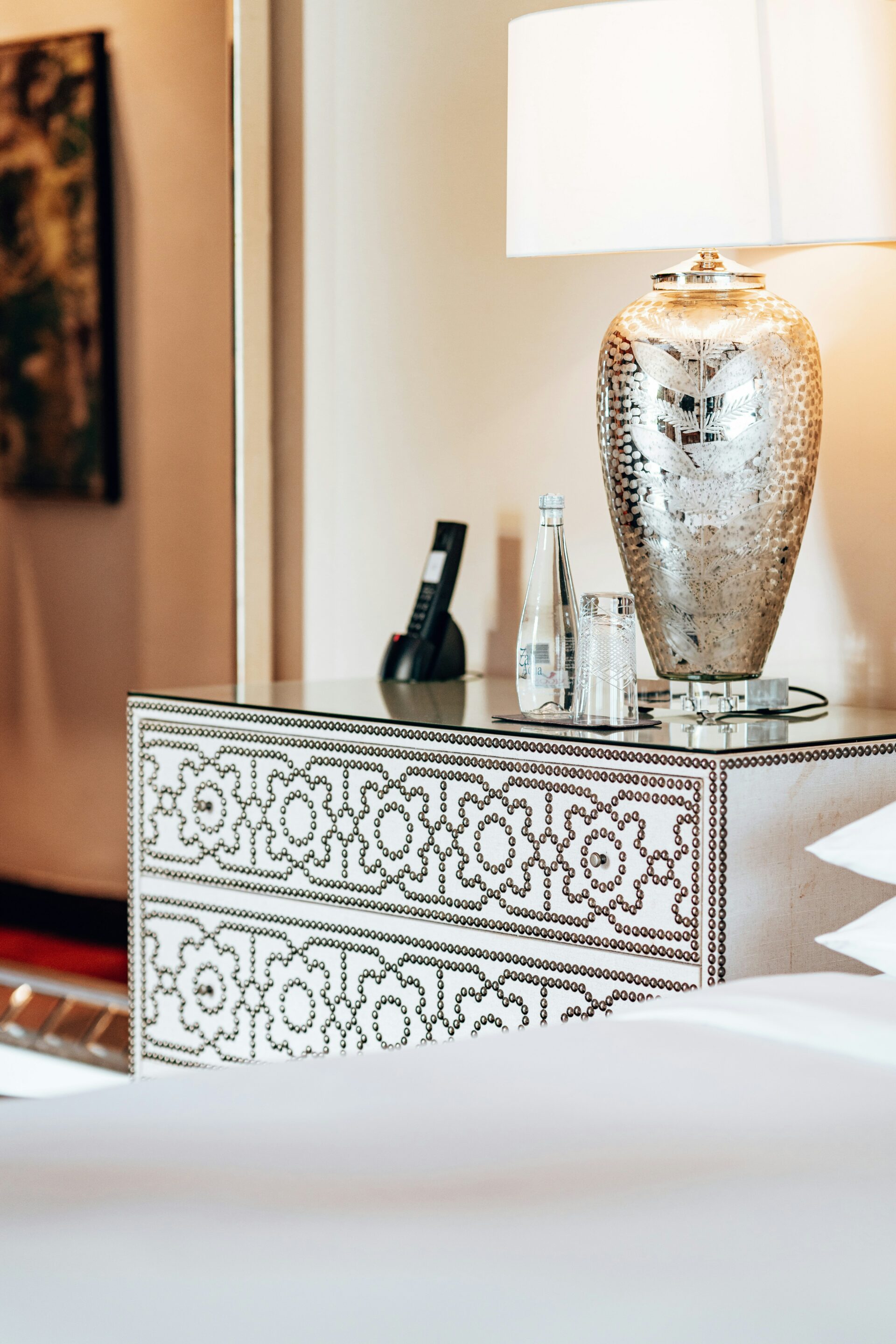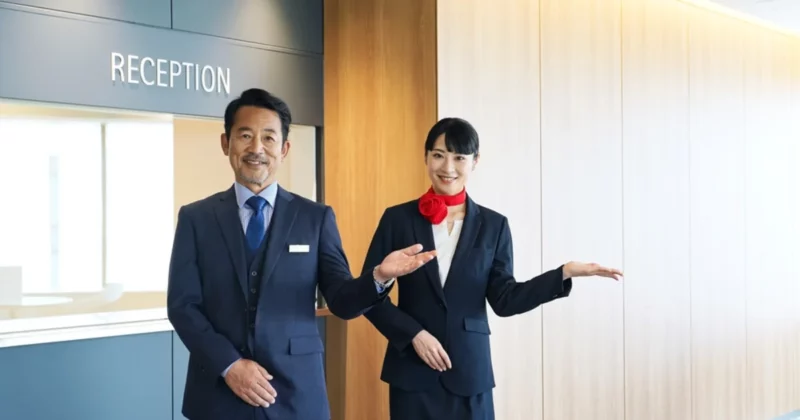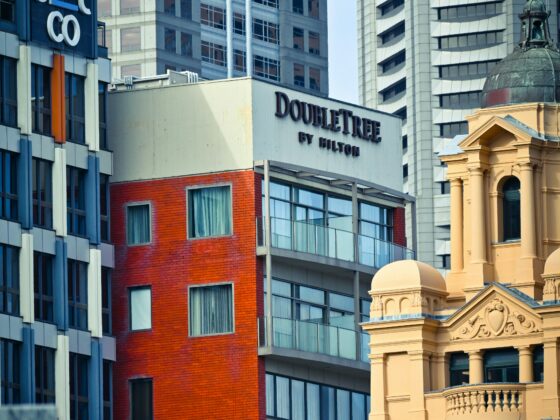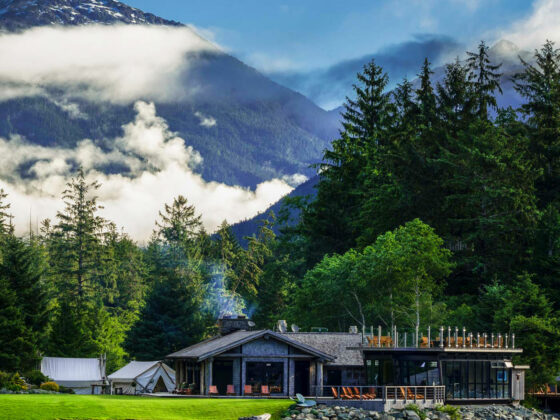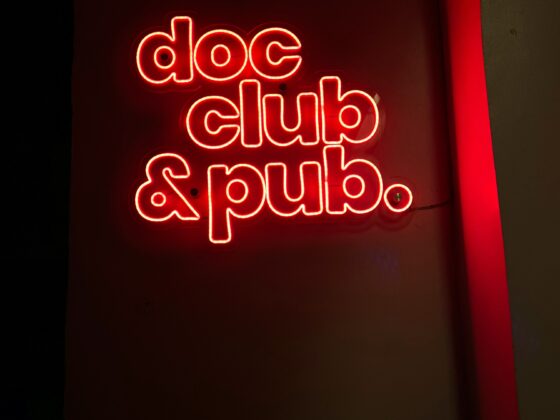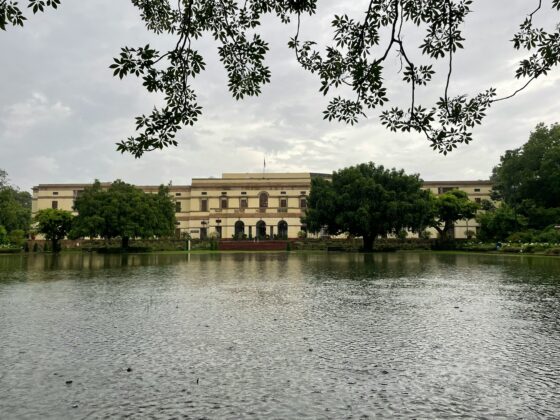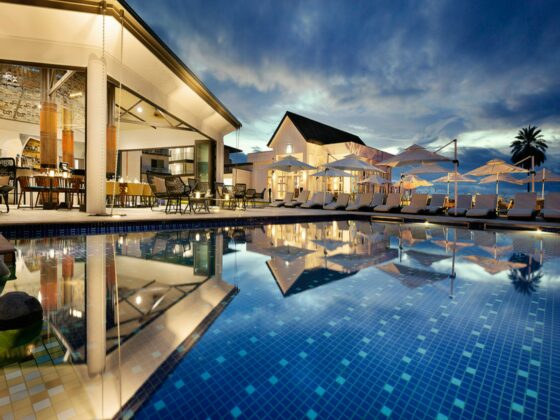
A Booking.com study of 33,000 travelers found three-quarters of respondents want to travel more sustainably in the coming 12 months. They are increasingly searching for green hotels and other accommodations to reduce their carbon footprint. Hotels can capitalize on this trend and gain a competitive edge by using more energy-efficient products, starting with their HVAC systems.
VRF Technology Delivers Energy-Efficient Comfort to Guests
All-electric variable refrigerant flow (VRF) heat pump solutions perform at significantly higher efficiency levels and emit lower carbon emissions than conventional, fossil-fuel powered HVAC systems. Conventional gas boilers rely on natural gas that releases carbon emissions into the atmosphere when burned. VRF heat pumps extract thermal energy from an external source, like the air or ground, and move it inside to heat a building during the winter. In the summer, the process can be reversed to provide cooling. VRF systems use the precise amount of energy needed to heat or cool a space and to match a hotel guest’s or employee’s comfort level.
These solutions also enable management and staff to adjust energy usage based on occupancy. If rooms are empty, management can easily adjust the temperature, which lowers energy usage and long-term operational costs.
Hotel Marcel Prioritizes Energy Innovation and Earns Recognition
Hotel Marcel, located in New Haven, Conn., is a great example of modernizing infrastructure to create greater energy efficiency. The first Passive house-certified zero-emission hotel in the United States, Hotel Marcel achieved this status in part because of the owner’s application of an air-source VRF system. The system they had installed was complemented with energy-recovery ventilators and all-electric heat pump water heaters for high-volume domestic hot water.
Rather than relying on fossil fuels, the 165-room hotel runs on 100% renewable electricity for lighting, heating, air conditioning, and hot water, harnessing energy with 1,000-plus solar panels on its rooftop and parking canopies.
Some of the most prominent hotel brands are actively positioning themselves as leaders in the effort to reduce their carbon footprint and deliver sustainable experiences through similar methods such as Hotel Marcel.
Deliver on guest preferences and future-proof your property
Sustainability isn’t a fad that’s soon going to fade into the background, it’s an important decision factor and a way of life for many people.
All-electric VRF technology offers a cleaner, more efficient, and sustainable way to heat and cool hotel properties, as these systems are fossil fuel-free, can reduce HVAC operating costs, and improve guest comfort. Among other benefits, choosing a VRF solution can also create opportunities to qualify for utility incentives and sustainable building certifications.
When making plans to modernize your property to meet the needs of the sustainably-minded guests, prioritize VRF.
ABOUT THE AUTHOR
As Senior Manager of Vertical Markets for Mitsubishi Electric Trane HVAC US (METUS), Tom Varga is responsible for the growth of ductless and variable refrigerant flow (VRF) sales within the U.S. hospitality market. He develops strategies and business plans while managing relationships to generate an ever-increasing pipeline of new business for the company.
